2 Timothy
Published: Jan 2016
Price range: £15.00 through £35.00
In the last 150 years 2 Timothy has been the object of much scholarly scrutiny, especially over the questions of its authorship and the historical situation it presupposes. Though a few scholars today accept Pauline authorship, most have supported the view that 2 Timothy is pseudonymous, written sometime after the death of Paul. In this commentary, Smith straddles the fine line between Pauline authorship and pseudonymity, proposing that Paul is the author but that Luke is a significant contributing amanuensis.
The most significant difference between this commentary and others is Smith's rejection of the common supposition that 2 Timothy is Paul's Farewell Speech or Last Testament. On the basis of his earlier work, Timothy's Task, Paul's Prospect, Smith understands 2 Timothy as a paraenetic letter written to Timothy encouraging him in his Ephesian ministry and asking him to join Paul in Rome. Paul's perspective in this letter is thus not one of resignation to death, nor does it express Paul's sense of passing on the baton to his younger colleague; rather it envisages his expectation of release from prison and his hope of new opportunities for ministry with Timothy, Luke and Mark.
Smith understands the problem of false teaching in Ephesus to be a real problem that Timothy is facing and not a fictional situation of a subsequent time. Smith carefully elucidates the difficult situation in the church at Ephesus and its effect on Timothy, together with Paul's kindly and thoughtful admonition given as a father to a son.
2 Timothy
Price range: £15.00 through £35.00
In the last 150 years 2 Timothy has been the object of much scholarly scrutiny, especially over the questions of its authorship and the historical situation it presupposes. Though a few scholars today accept Pauline authorship, most have supported the view that 2 Timothy is pseudonymous, written sometime after the death of Paul. In this commentary, Smith straddles the fine line between Pauline authorship and pseudonymity, proposing that Paul is the author but that Luke is a significant contributing amanuensis.
The most significant difference between this commentary and others is Smith's rejection of the common supposition that 2 Timothy is Paul's Farewell Speech or Last Testament. On the basis of his earlier work, Timothy's Task, Paul's Prospect, Smith understands 2 Timothy as a paraenetic letter written to Timothy encouraging him in his Ephesian ministry and asking him to join Paul in Rome. Paul's perspective in this letter is thus not one of resignation to death, nor does it express Paul's sense of passing on the baton to his younger colleague; rather it envisages his expectation of release from prison and his hope of new opportunities for ministry with Timothy, Luke and Mark.
Smith understands the problem of false teaching in Ephesus to be a real problem that Timothy is facing and not a fictional situation of a subsequent time. Smith carefully elucidates the difficult situation in the church at Ephesus and its effect on Timothy, together with Paul's kindly and thoughtful admonition given as a father to a son.
The Integrity of 2 Corinthians and Paul’s Aggravating Absence
Published: Sep 2015
£60.00
Is 2 Corinthians a single letter, or a composite of fragments? Does it have a single setting, or do its parts address successive stages in a developing crisis? This is perennial set of questions about this Pauline letter.
In this provocative study, Christopher D. Land steps back from the details that dominate most discussions of integrity. He analyses 2 Corinthians using a theoretically motivated procedure, avoiding the cherry-picking that plagues so many language-related arguments. Then, drawing upon this analysis, he segments 2 Corinthians into five parts. Examining the sorts of meanings employed in each segment, Land asks what is being talked about, what is being done, and who is taking part.
He distinguishes between the settings in which texts are produced and the situations construed by their language, and he affirms both the conventional nature of intra-textual variation and the principle that coherent texts construe coherent situations. In the end, Land argues that 2 Corinthians has the general appearance of being a single text, and that its specifics ought to be re-examined accordingly.
Irrespective of linguistics and literary integrity, scholars of all persuasions will be interested in the specifics. Among other things, Land argues that there is no single 'offender' underlying Paul's remarks in chaps. 2 and 7, but a plurality of misbehaving church members. Paul has been accused of holding the church responsible for problems caused by his prolonged absence; and other Christian missionaries are stoking the church's discontent, criticizing Paul's ineffectual leadership and advancing their own as superior. To confront this crisis, Paul must simultaneously placate his readers, reiterate his demand that they care for themselves in his absence, and persuade them not to abandon him for 'stronger' leadership.
The Integrity of 2 Corinthians and Paul’s Aggravating Absence
£60.00
Is 2 Corinthians a single letter, or a composite of fragments? Does it have a single setting, or do its parts address successive stages in a developing crisis? This is perennial set of questions about this Pauline letter.
In this provocative study, Christopher D. Land steps back from the details that dominate most discussions of integrity. He analyses 2 Corinthians using a theoretically motivated procedure, avoiding the cherry-picking that plagues so many language-related arguments. Then, drawing upon this analysis, he segments 2 Corinthians into five parts. Examining the sorts of meanings employed in each segment, Land asks what is being talked about, what is being done, and who is taking part.
He distinguishes between the settings in which texts are produced and the situations construed by their language, and he affirms both the conventional nature of intra-textual variation and the principle that coherent texts construe coherent situations. In the end, Land argues that 2 Corinthians has the general appearance of being a single text, and that its specifics ought to be re-examined accordingly.
Irrespective of linguistics and literary integrity, scholars of all persuasions will be interested in the specifics. Among other things, Land argues that there is no single 'offender' underlying Paul's remarks in chaps. 2 and 7, but a plurality of misbehaving church members. Paul has been accused of holding the church responsible for problems caused by his prolonged absence; and other Christian missionaries are stoking the church's discontent, criticizing Paul's ineffectual leadership and advancing their own as superior. To confront this crisis, Paul must simultaneously placate his readers, reiterate his demand that they care for themselves in his absence, and persuade them not to abandon him for 'stronger' leadership.
The Letter to the Romans: Salvation as Justice and the Deconstruction of Law
Published: Sep 2011
£70.00
Romans, says Waetjen, is the first publication of the Christ movement. To understand it well is therefore a task of monumental importance, and to understand it today requires a postmodern hermeneutics, in which the interpreter's subjective experience of reading the text is correlated with historical-critical knowledge and social-scientific criticism. That hermeneutics has to create a new genre of commentary, making room for readers' prior understandings as well as for a dynamic form of close reading and consistency building. The outcome is a contemporizing of Paul's theology that induces conversation with Derrida, Žižek, Badiou and Agamben and others.
The central theme of Romans is, according to Waetjen, the healing of humanity through the realization of 'the justice of God', which is disclosed in the movement 'out of trust into trust', or, more specifically, out of the trust of Abraham into the trust of Jesus Christ. Living on this side of the law of Sinai and therefore being conscious of the condition of sin requires the reconciliation of Christ's death and the justification of Christ's resurrection in order to participate in the New Humanity of life-giving spirits.
Consequently Romans is more than a rhetorical effort to mediate conflicts between Jewish and Gentile believers in Rome. Composed prior to his journey to Jerusalem with the possibility of martyrdom before him, the letter is Paul's major theological testament.
The Letter to the Romans: Salvation as Justice and the Deconstruction of Law
£70.00
Romans, says Waetjen, is the first publication of the Christ movement. To understand it well is therefore a task of monumental importance, and to understand it today requires a postmodern hermeneutics, in which the interpreter's subjective experience of reading the text is correlated with historical-critical knowledge and social-scientific criticism. That hermeneutics has to create a new genre of commentary, making room for readers' prior understandings as well as for a dynamic form of close reading and consistency building. The outcome is a contemporizing of Paul's theology that induces conversation with Derrida, Žižek, Badiou and Agamben and others.
The central theme of Romans is, according to Waetjen, the healing of humanity through the realization of 'the justice of God', which is disclosed in the movement 'out of trust into trust', or, more specifically, out of the trust of Abraham into the trust of Jesus Christ. Living on this side of the law of Sinai and therefore being conscious of the condition of sin requires the reconciliation of Christ's death and the justification of Christ's resurrection in order to participate in the New Humanity of life-giving spirits.
Consequently Romans is more than a rhetorical effort to mediate conflicts between Jewish and Gentile believers in Rome. Composed prior to his journey to Jerusalem with the possibility of martyrdom before him, the letter is Paul's major theological testament.
Paul and Human Rights: A Dialogue with the Father of the Corinthian Community
Published: Oct 2009
£50.00
Unless biblical studies in any generation engages with the concrete issues and concerns of its day, it is likely to paint itself into an irrelevant scholarly corner. In a world shaped by the rhetoric and structures of 'human rights' (though struggling to accept and apply them) it is surprising that biblical scholars have largely failed to engage rights notions. Paul and Human Rights brings a biblical perspective to human rights by constructing a dialogue between them and the Paul of the Corinthian correspondence on key issues of power, equality and social structure.
The concept of human rights would have been alien to Paul, yet his Corinthian letters provide evidence of a sustained interaction with the kinds of issues we talk of in human rights terms. Long here explores Paul's emotive, manipulative language of mimesis, apostleship and fatherhood in conversation with human rights values. Similarly, Paul's social engineering and instructions regarding women and slaves are examined against the backdrop of human rights ideas about social structure and equality.
Unlike some other writers, Long's aim is neither to laud nor denigrate either Paul or human rights. His purpose is to build a dialogue where both can be heard and each can contribute to thinking about the other. In particular, the cruciform, other-orientation of Pauline servanthood provides a framework within which to consider how human rights ideas might continue to shape readings of Paul, and how Pauline perspectives might offer a critical alternative to the limited agenda of much contemporary human-rights thinking.
Paul and Human Rights: A Dialogue with the Father of the Corinthian Community
£50.00
Unless biblical studies in any generation engages with the concrete issues and concerns of its day, it is likely to paint itself into an irrelevant scholarly corner. In a world shaped by the rhetoric and structures of 'human rights' (though struggling to accept and apply them) it is surprising that biblical scholars have largely failed to engage rights notions. Paul and Human Rights brings a biblical perspective to human rights by constructing a dialogue between them and the Paul of the Corinthian correspondence on key issues of power, equality and social structure.
The concept of human rights would have been alien to Paul, yet his Corinthian letters provide evidence of a sustained interaction with the kinds of issues we talk of in human rights terms. Long here explores Paul's emotive, manipulative language of mimesis, apostleship and fatherhood in conversation with human rights values. Similarly, Paul's social engineering and instructions regarding women and slaves are examined against the backdrop of human rights ideas about social structure and equality.
Unlike some other writers, Long's aim is neither to laud nor denigrate either Paul or human rights. His purpose is to build a dialogue where both can be heard and each can contribute to thinking about the other. In particular, the cruciform, other-orientation of Pauline servanthood provides a framework within which to consider how human rights ideas might continue to shape readings of Paul, and how Pauline perspectives might offer a critical alternative to the limited agenda of much contemporary human-rights thinking.
Recent Research on Paul and Slavery
Published: Aug 2008
£45.00
New Testament scholarship and Paul have had a complicated relationship over the question of slavery. For many decades there has been a struggle to reconcile the abolitionist cause with a biblical text that seemingly supports the institution of slavery. Then the more recent discovery of inscriptions and documents referring to slaves in antiquity has added new dimensions to the debate. Furthermore, new interpretative approaches to the New Testament, including social-scientific criticism, rhetorical criticism and postcolonial criticism, have challenged earlier interpretations of Paul's statements about slavery. The issue has even more recently taken on a new shape as descendants of former North American slaves have engaged with the way Paul has been interpreted and used to justify the enslavement of their ancestors.
In this volume, John Byron provides a survey of 200 years of scholarly interpretation of Paul and slavery with a focus on the last 35 years. After a general overview of the history of research, Byron focusses in turn on four specific areas: African-American responses to Paul, Paul's slavery metaphors, the elliptical phrase in 1 Corinthians 7.21, and the letter to Philemon. An epilogue highlights four areas in which scholarship is continuing to change its understanding of ancient slavery and, in consequence, its interpretation of Paul. New Testament students and scholars will find the volume an valuable specialist resource that collects and analyses the most important developments on Paul and slavery.
Recent Research on Paul and Slavery
£45.00
New Testament scholarship and Paul have had a complicated relationship over the question of slavery. For many decades there has been a struggle to reconcile the abolitionist cause with a biblical text that seemingly supports the institution of slavery. Then the more recent discovery of inscriptions and documents referring to slaves in antiquity has added new dimensions to the debate. Furthermore, new interpretative approaches to the New Testament, including social-scientific criticism, rhetorical criticism and postcolonial criticism, have challenged earlier interpretations of Paul's statements about slavery. The issue has even more recently taken on a new shape as descendants of former North American slaves have engaged with the way Paul has been interpreted and used to justify the enslavement of their ancestors.
In this volume, John Byron provides a survey of 200 years of scholarly interpretation of Paul and slavery with a focus on the last 35 years. After a general overview of the history of research, Byron focusses in turn on four specific areas: African-American responses to Paul, Paul's slavery metaphors, the elliptical phrase in 1 Corinthians 7.21, and the letter to Philemon. An epilogue highlights four areas in which scholarship is continuing to change its understanding of ancient slavery and, in consequence, its interpretation of Paul. New Testament students and scholars will find the volume an valuable specialist resource that collects and analyses the most important developments on Paul and slavery.
Marxist Feminist Criticism of the Bible
Published: Jun 2008
£40.00
This volume seeks to spur a lively discussion on Marxist feminist analysis of biblical texts. Marxism and feminism have many mutual concerns, and the combination of the two has become common in literary criticism, cultural studies, sociology and philosophy. So it is high time for biblical studies to become interested.
This collection is the first of its kind in biblical studies, bringing together a mixture of newer and more mature voices. It falls into three sections: general concerns (Milena Kirova, Tamara Prosic and David Jobling); Hebrew Bible (Gale Yee and Avaren Ipsen); New Testament (Alan Cadwallader, Jorunn Økland, Roland Boer and Jennifer Bird).
Thought-provoking and daring, the collection includes: the history of Marxist feminist analysis, the work of Bertolt Brecht, the voices of prostitute collectives, and the possibilities for biblical criticism of the work of Rosemary Hennessy, Simone de Beauvoir, Juliet Mitchell, Wilhelm Reich and Julia Kristeva. All of which are brought to bear on biblical texts such as Proverbs, 1 Kings, Mark, Paul's Letters, and 1 Peter.
Marxist Feminist Criticism of the Bible
£40.00
This volume seeks to spur a lively discussion on Marxist feminist analysis of biblical texts. Marxism and feminism have many mutual concerns, and the combination of the two has become common in literary criticism, cultural studies, sociology and philosophy. So it is high time for biblical studies to become interested.
This collection is the first of its kind in biblical studies, bringing together a mixture of newer and more mature voices. It falls into three sections: general concerns (Milena Kirova, Tamara Prosic and David Jobling); Hebrew Bible (Gale Yee and Avaren Ipsen); New Testament (Alan Cadwallader, Jorunn Økland, Roland Boer and Jennifer Bird).
Thought-provoking and daring, the collection includes: the history of Marxist feminist analysis, the work of Bertolt Brecht, the voices of prostitute collectives, and the possibilities for biblical criticism of the work of Rosemary Hennessy, Simone de Beauvoir, Juliet Mitchell, Wilhelm Reich and Julia Kristeva. All of which are brought to bear on biblical texts such as Proverbs, 1 Kings, Mark, Paul's Letters, and 1 Peter.
Philemon
Published: Apr 2008
Price range: £15.00 through £35.00
This latest volume in the Readings series offers a helpful guide to the shortest, and arguably the most personal, as well as enigmatic, of Paul's letters. It surveys the range of interpretations put forward over the years, and identifies the strengths and weaknesses in the traditional reading of Philemon as addressing the estrangement that has arisen between Paul's friend Philemon and his runaway slave Onesimus.
Recent alternatives to this reading are assessed, with particular attention to the light they shed on Paul's own attitude to slavery and his understanding of reconciliation. Historically, the Letter to Philemon has been the focus of much debate between abolitionists and pro-slavery advocates, and the use made of the Letter in the 18th and 19th centuries is here uniquely chronicled. In addition, the story of Onesimus and Philemon, as traditionally conceived, had a great appeal to writers of historical fiction, and a number of examples of that genre are summarized. The book also highlights the way in which Philemon has featured in filmic treatments of Paul's life, including a new and fascinating film in Arabic entitled The Runaway (2006).
The volume offers an excellent introduction, not only to the main historical and critical issues raised by Philemon, but also to the rich legacy that the Letter has created for subsequent generations of readers who remain fascinated by the subtlety of its depiction of human relationships.
Philemon
Price range: £15.00 through £35.00
This latest volume in the Readings series offers a helpful guide to the shortest, and arguably the most personal, as well as enigmatic, of Paul's letters. It surveys the range of interpretations put forward over the years, and identifies the strengths and weaknesses in the traditional reading of Philemon as addressing the estrangement that has arisen between Paul's friend Philemon and his runaway slave Onesimus.
Recent alternatives to this reading are assessed, with particular attention to the light they shed on Paul's own attitude to slavery and his understanding of reconciliation. Historically, the Letter to Philemon has been the focus of much debate between abolitionists and pro-slavery advocates, and the use made of the Letter in the 18th and 19th centuries is here uniquely chronicled. In addition, the story of Onesimus and Philemon, as traditionally conceived, had a great appeal to writers of historical fiction, and a number of examples of that genre are summarized. The book also highlights the way in which Philemon has featured in filmic treatments of Paul's life, including a new and fascinating film in Arabic entitled The Runaway (2006).
The volume offers an excellent introduction, not only to the main historical and critical issues raised by Philemon, but also to the rich legacy that the Letter has created for subsequent generations of readers who remain fascinated by the subtlety of its depiction of human relationships.
What Must I Do to Be Saved? Paul Parts Company with His Jewish Heritage
Published: Apr 2007
£50.00
How can one escape God's wrath and gain eternal life? On this crucial theological question, Paul differs from other members of the second-Temple Jewish community. Their soteriology is synergistic: for them, though eschatological salvation is due to God's merciful removal of human guilt, obedience to the Law is also indispensable. The divine and the human co-operate.
Paul however believes that under such a scheme anything less than perfect obedience to the Law is futile. In consequence, if there is to be salvation for sinful humans, it must be a salvation independent of all human effort and achievement, and thus solely through faith. Contrary to the recent consensus, Paul's concern was not primarily the inclusion of gentiles into the church.
This non-synergistic soteriology of Paul's may seem undermined by some of his own statements, that believers must submit to eschatological judgment and that the person without good works will be disqualified from eschatological salvation. But this conclusion is incorrect. For what he holds is that the good works indispensable for salvation are necessarily performed by the believer as manifestations of the indwelling Spirit present in those who have faith in Christ.
What Must I Do to Be Saved? Paul Parts Company with His Jewish Heritage
£50.00
How can one escape God's wrath and gain eternal life? On this crucial theological question, Paul differs from other members of the second-Temple Jewish community. Their soteriology is synergistic: for them, though eschatological salvation is due to God's merciful removal of human guilt, obedience to the Law is also indispensable. The divine and the human co-operate.
Paul however believes that under such a scheme anything less than perfect obedience to the Law is futile. In consequence, if there is to be salvation for sinful humans, it must be a salvation independent of all human effort and achievement, and thus solely through faith. Contrary to the recent consensus, Paul's concern was not primarily the inclusion of gentiles into the church.
This non-synergistic soteriology of Paul's may seem undermined by some of his own statements, that believers must submit to eschatological judgment and that the person without good works will be disqualified from eschatological salvation. But this conclusion is incorrect. For what he holds is that the good works indispensable for salvation are necessarily performed by the believer as manifestations of the indwelling Spirit present in those who have faith in Christ.
Works of the Law at Qumran and in Paul
Published: Mar 2007
£60.00
The phrase 'works of the law' occurs only in the Dead Sea Scrolls and in Paul, but it has a different connotation in each corpus.
At Qumran, the 'works of the law' are deeds of obedience to God's law, and are ultimately inspired by God. They function as a means of atonement, whether for the individual who performs them or for the sins of others.
For Paul, on the other hand, the 'works of the law' are quintessentially the works of Abraham. Though they are indeed good deeds, Abraham himself was a sinful man, and so his deeds could not make atonement for himself or for others. In fact, Paul is reacting against the idea of Abraham as a redeemer figure that was held by some of his contemporaries.
The phrase 'works of the law' thus takes on a negative coloration in Paul, as a deceptively false means of salvation. In contrast to Qumran, Paul's position is that justification must be effected 'apart from works of the law', and thus by Jesus Christ. Abraham is no 'second Adam', as some were thinking, and his good deeds, epitomized in his sacrifice of Isaac, had no atoning value.
This closely reasoned study makes an important contribution to the study of New Testament theology; it undertakes to settle some long-standing debates about Paul's soteriology by proposing an alternative both to traditional interpretation of Paul and to the 'New Perspective on Paul'.
Works of the Law at Qumran and in Paul
£60.00
The phrase 'works of the law' occurs only in the Dead Sea Scrolls and in Paul, but it has a different connotation in each corpus.
At Qumran, the 'works of the law' are deeds of obedience to God's law, and are ultimately inspired by God. They function as a means of atonement, whether for the individual who performs them or for the sins of others.
For Paul, on the other hand, the 'works of the law' are quintessentially the works of Abraham. Though they are indeed good deeds, Abraham himself was a sinful man, and so his deeds could not make atonement for himself or for others. In fact, Paul is reacting against the idea of Abraham as a redeemer figure that was held by some of his contemporaries.
The phrase 'works of the law' thus takes on a negative coloration in Paul, as a deceptively false means of salvation. In contrast to Qumran, Paul's position is that justification must be effected 'apart from works of the law', and thus by Jesus Christ. Abraham is no 'second Adam', as some were thinking, and his good deeds, epitomized in his sacrifice of Isaac, had no atoning value.
This closely reasoned study makes an important contribution to the study of New Testament theology; it undertakes to settle some long-standing debates about Paul's soteriology by proposing an alternative both to traditional interpretation of Paul and to the 'New Perspective on Paul'.
Timothy’s Task, Paul’s Prospect: A New Reading of 2 Timothy
Published: Sep 2006
£55.00
In this challenging book, Craig Smith propounds the novel thesis that the famous lines in 2 Timothy 4 where 'Paul' announces that the time of his departure has come have been misunderstood. This is no farewell speech, Smith avers, and Paul is not intending to pass on the baton to his younger colleague, Timothy.
Deploying epistolary analysis and rhetorical criticism, Smith shows that these verses (4:1-8) do not have the literary structure or the vocabulary of a testament or a farewell; rather, they are a 'charge', an authoritative command, comprised of five specific formal elements. This charge form is found also in the exorcism command and in some magical texts, Christian and non-Christian.
From this perspective, Paul's being poured out as a libation is his experience of preaching to the Gentiles at his first trial, his 'departure' is the imminent release from prison that he is expecting, the fight he has fought and the race he has finished are his trial that he has withstood. Far from appointing Timothy as his successor, he is contemplating a continued companionship and collegiality as they continue their ministry together.
Timothy’s Task, Paul’s Prospect: A New Reading of 2 Timothy
£55.00
In this challenging book, Craig Smith propounds the novel thesis that the famous lines in 2 Timothy 4 where 'Paul' announces that the time of his departure has come have been misunderstood. This is no farewell speech, Smith avers, and Paul is not intending to pass on the baton to his younger colleague, Timothy.
Deploying epistolary analysis and rhetorical criticism, Smith shows that these verses (4:1-8) do not have the literary structure or the vocabulary of a testament or a farewell; rather, they are a 'charge', an authoritative command, comprised of five specific formal elements. This charge form is found also in the exorcism command and in some magical texts, Christian and non-Christian.
From this perspective, Paul's being poured out as a libation is his experience of preaching to the Gentiles at his first trial, his 'departure' is the imminent release from prison that he is expecting, the fight he has fought and the race he has finished are his trial that he has withstood. Far from appointing Timothy as his successor, he is contemplating a continued companionship and collegiality as they continue their ministry together.
Studies in Paul, Exegetical and Theological
Published: Jun 2006
Price range: £15.95 through £65.00
Masterly, balanced, concise, jargon-free essays on topics central to the theology of Paul, remaining closely in touch with the biblical text itself while always alert to the range of scholarly opinion and debate. These eleven articles from a recognized leader among New Testament scholars are an attractive entry-point for students into key aspects of Paul's thought, and are, equally, well worth revisiting by experienced scholars.
Two essays concern Paul's personal life, one of them on the impact of his conversion on his understanding of Jesus, the other on his experience of prayer. In the context of Galatians, Longenecker explores the idea of the 'pedagogue', and in the context of Romans the questions of its addressees and its purpose. Other themes are Paul's vision of community formation, his concept of mutuality, and the variability of his responses to opponents. In the last three essays, the focus is on Paul's theology of the resurrection —its basis, its background in Jewish thinking, and whether his thought on the subject underwent development.
Studies in Paul, Exegetical and Theological
Price range: £15.95 through £65.00
Masterly, balanced, concise, jargon-free essays on topics central to the theology of Paul, remaining closely in touch with the biblical text itself while always alert to the range of scholarly opinion and debate. These eleven articles from a recognized leader among New Testament scholars are an attractive entry-point for students into key aspects of Paul's thought, and are, equally, well worth revisiting by experienced scholars.
Two essays concern Paul's personal life, one of them on the impact of his conversion on his understanding of Jesus, the other on his experience of prayer. In the context of Galatians, Longenecker explores the idea of the 'pedagogue', and in the context of Romans the questions of its addressees and its purpose. Other themes are Paul's vision of community formation, his concept of mutuality, and the variability of his responses to opponents. In the last three essays, the focus is on Paul's theology of the resurrection —its basis, its background in Jewish thinking, and whether his thought on the subject underwent development.
Leadership Succession in the World of the Pauline Circle
Published: Jun 2006
£50.00
Since New Testament times, the discussion of leadership succession in the church has always been polemical. But what the New Testament, especially in the Pastoral Epistles, means in speaking of succession deserves a more sober investigation in the light of the literary tradition about succession in the ancient Mediterranean world.
How is succession actually depicted in Graeco-Roman texts and in Jewish and early Christian texts of that world? This book undertakes, for the first time, a thoroughgoing analysis of the evidence, deftly laying out the data from a wide range of Greek and Roman writers. The question then becomes how the early readers of the New Testament, conditioned by prior knowledge of such epistolary and other literary conventions, would have interpreted Paul's relationship with his delegates like Timothy and Titus, and how they would have conceived the ministry portrayed in the Pastorals as passing from a leader to a successor.
Stepp's study has important implications both for our understanding of the ancient Mediterranean world and for our conceptions of ordination and ministry in the New Testament.
Leadership Succession in the World of the Pauline Circle
£50.00
Since New Testament times, the discussion of leadership succession in the church has always been polemical. But what the New Testament, especially in the Pastoral Epistles, means in speaking of succession deserves a more sober investigation in the light of the literary tradition about succession in the ancient Mediterranean world.
How is succession actually depicted in Graeco-Roman texts and in Jewish and early Christian texts of that world? This book undertakes, for the first time, a thoroughgoing analysis of the evidence, deftly laying out the data from a wide range of Greek and Roman writers. The question then becomes how the early readers of the New Testament, conditioned by prior knowledge of such epistolary and other literary conventions, would have interpreted Paul's relationship with his delegates like Timothy and Titus, and how they would have conceived the ministry portrayed in the Pastorals as passing from a leader to a successor.
Stepp's study has important implications both for our understanding of the ancient Mediterranean world and for our conceptions of ordination and ministry in the New Testament.
Acts and Ethics
Published: Dec 2005
£50.00
This volume, the fruit of the sessions on the Book of Acts at the Annual Meeting of the Society of Biblical Literature, in San Antonio, Texas, in November 2004, contains these papers:
Stanley E. Porter, 'The Genre of Acts and the Ethics of Discourse'
Robert L. Brawley, 'Social Identity and the Aim of Accomplished Life in Acts 2'
F. Scott Spencer, 'Wise Up, Young Man: The Moral Vision of Saul and Other "Neaniskoi" in Acts'
Thomas E. Phillips, 'Paul as a Role Model in Acts: The "We"-Passages in Acts 16 and Beyond'
Richard P. Thompson, "What Do You Think You Are Doing, Paul?" Synagogues, Accusations, and Ethics in Paul's Ministry in Acts 16-21'
Matthew L. Skinner, 'Unchained Ministry: Paul's Roman Custody (Acts 21 —28) and the Sociopolitical Outlook of the Book of Acts'
C. Kavin Rowe, 'Authority and Community: Lukan Dominium in Acts'
Robert C. Tannehill, 'Do the Ethics of Acts Include the Ethical Teaching in Luke?'
Pamela Hedrick, 'The Good Samaritan, Cornelius, and the Just Use of Force'
Acts and Ethics
£50.00
This volume, the fruit of the sessions on the Book of Acts at the Annual Meeting of the Society of Biblical Literature, in San Antonio, Texas, in November 2004, contains these papers:
Stanley E. Porter, 'The Genre of Acts and the Ethics of Discourse'
Robert L. Brawley, 'Social Identity and the Aim of Accomplished Life in Acts 2'
F. Scott Spencer, 'Wise Up, Young Man: The Moral Vision of Saul and Other "Neaniskoi" in Acts'
Thomas E. Phillips, 'Paul as a Role Model in Acts: The "We"-Passages in Acts 16 and Beyond'
Richard P. Thompson, "What Do You Think You Are Doing, Paul?" Synagogues, Accusations, and Ethics in Paul's Ministry in Acts 16-21'
Matthew L. Skinner, 'Unchained Ministry: Paul's Roman Custody (Acts 21 —28) and the Sociopolitical Outlook of the Book of Acts'
C. Kavin Rowe, 'Authority and Community: Lukan Dominium in Acts'
Robert C. Tannehill, 'Do the Ethics of Acts Include the Ethical Teaching in Luke?'
Pamela Hedrick, 'The Good Samaritan, Cornelius, and the Just Use of Force'
Corpus Linguistics and the Greek of the New Testament
Published: Jan 2005
£85.00
The burgeoning field of corpus linguistics studies aspects of a language that are susceptible to computer processing once a sizable electronic corpus of the language has been assembled. In this groundbreaking work, O'Donnell takes the unusual step of applying the techniques of corpus linguistics to Hellenistic Greek and especially the Greek of the New Testament, and in three areas shows, with a multitude of worked examples, how it could sharpen our appreciation of the language.
First, in New Testament textual criticism decisions for a preferred reading would be better founded if all analogous data in all the manuscript traditions were available. And in source criticism, where statistical methods have already been applied, more advanced statistical and graphical techniques, including dotplot, can now be exploited.
The second application of corpus linguistics is to lexicography, where, for example, collocational analysis of a corpus of texts leads to sharper definition of synonyms; the case of the pair egeiro and anistemi ('raise'), considered in detail, proves the point.
Thirdly, corpus-based techniques can be applied to discourse analysis. Here O'Donnell fine-tunes —by means of a subtle discourse annotation model —answers that may be given to questions about the situation and purpose of the letters of Jude and of Paul to Philemon. This book, though technical in many parts, opens up a new field to many biblical scholars, who may be surprised to discover how much they still have to learn about the Greek of the New Testament.
Corpus Linguistics and the Greek of the New Testament
£85.00
The burgeoning field of corpus linguistics studies aspects of a language that are susceptible to computer processing once a sizable electronic corpus of the language has been assembled. In this groundbreaking work, O'Donnell takes the unusual step of applying the techniques of corpus linguistics to Hellenistic Greek and especially the Greek of the New Testament, and in three areas shows, with a multitude of worked examples, how it could sharpen our appreciation of the language.
First, in New Testament textual criticism decisions for a preferred reading would be better founded if all analogous data in all the manuscript traditions were available. And in source criticism, where statistical methods have already been applied, more advanced statistical and graphical techniques, including dotplot, can now be exploited.
The second application of corpus linguistics is to lexicography, where, for example, collocational analysis of a corpus of texts leads to sharper definition of synonyms; the case of the pair egeiro and anistemi ('raise'), considered in detail, proves the point.
Thirdly, corpus-based techniques can be applied to discourse analysis. Here O'Donnell fine-tunes —by means of a subtle discourse annotation model —answers that may be given to questions about the situation and purpose of the letters of Jude and of Paul to Philemon. This book, though technical in many parts, opens up a new field to many biblical scholars, who may be surprised to discover how much they still have to learn about the Greek of the New Testament.





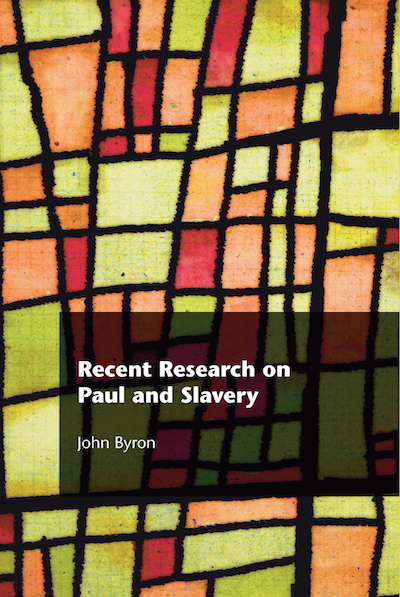
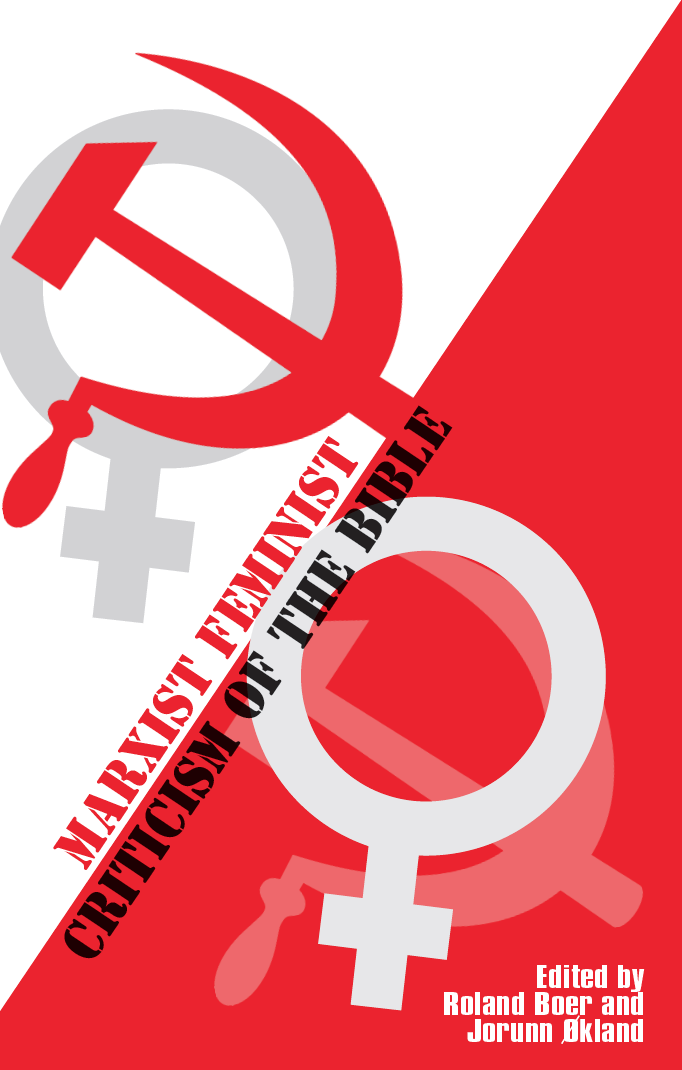
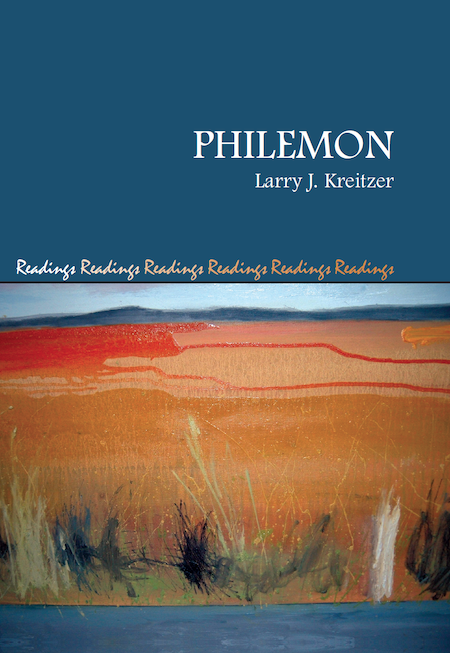
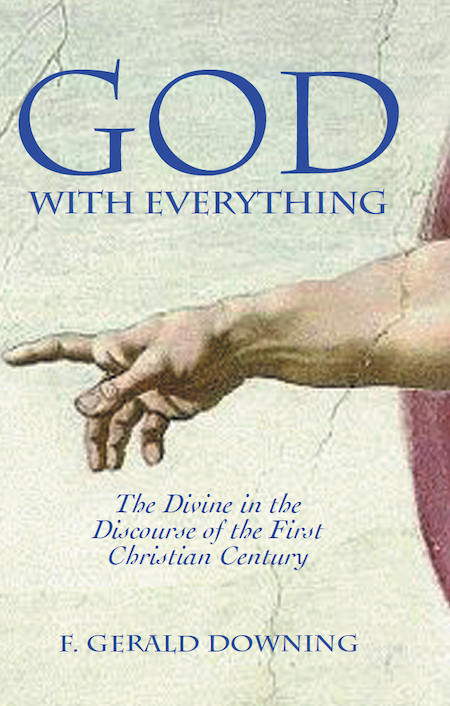

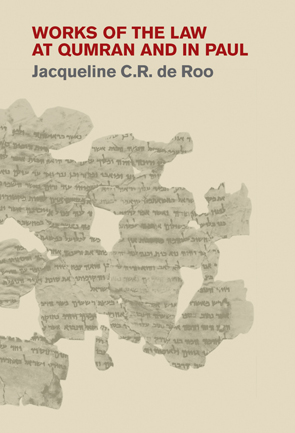

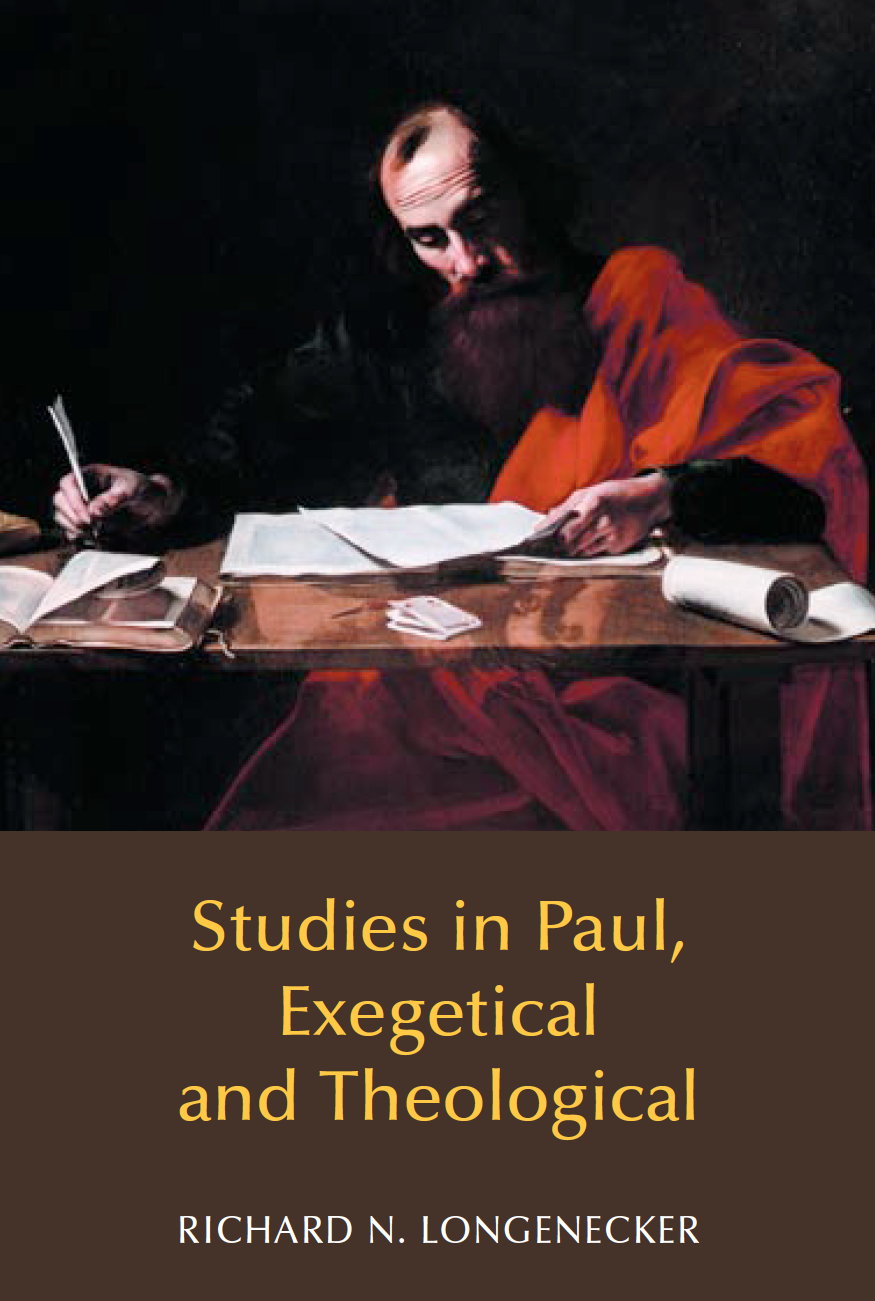
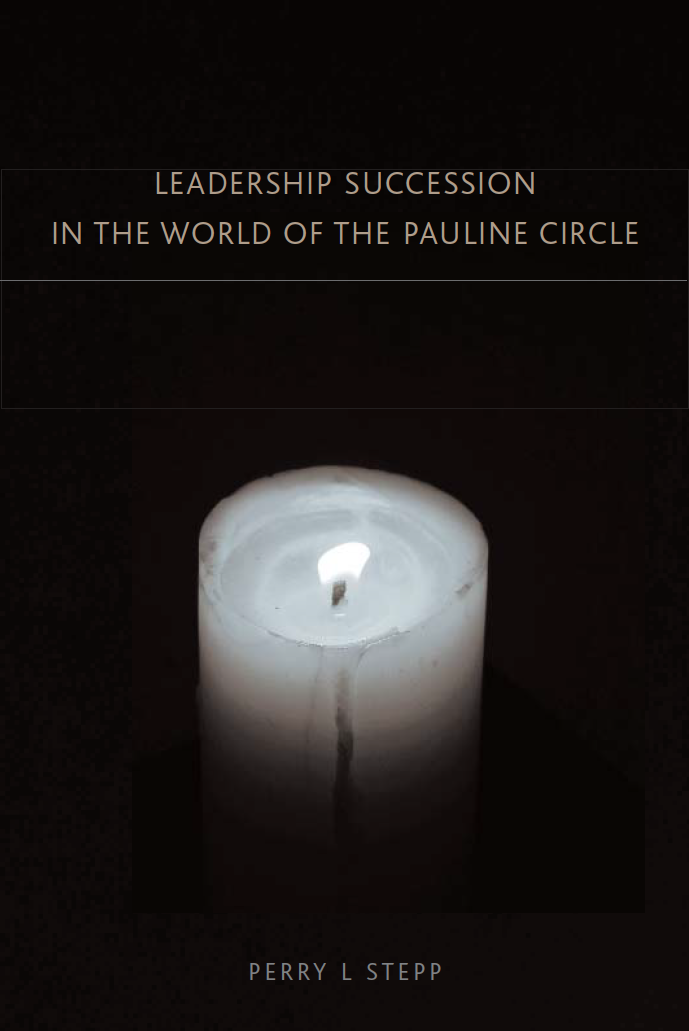


The Letter to the Romans: Paul among the Ecologists
The Letter to the Romans: Paul among the Ecologists